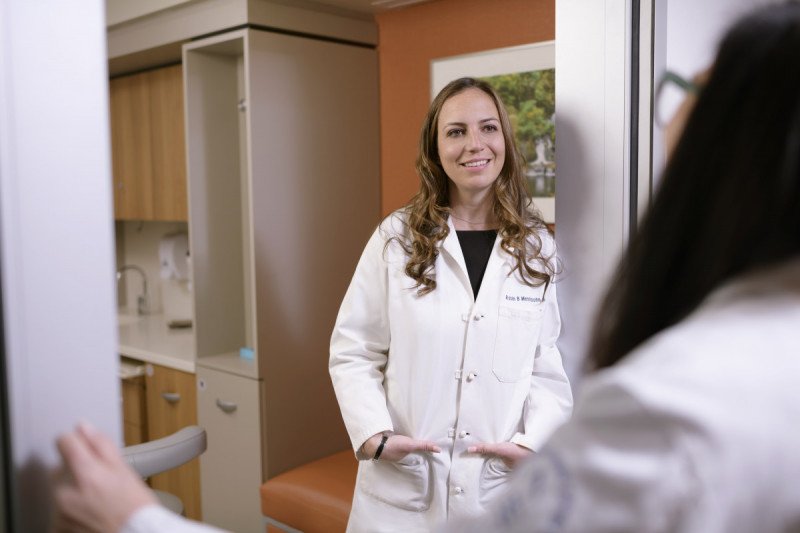
Dr. Robin Mendelsohn
The United States Preventive Services Task Force released updated draft recommendations on colorectal cancer screening which, among other things, call for screening for the general population to begin at age 45. Currently the recommendations for those at average risk for the disease begin at 50. The news comes as more and more people under 50 are being diagnosed with colon and rectal cancers. This alarming trend led Memorial Sloan Kettering to develop the first of its kind Center for Young Onset Colorectal Cancer. The center is dedicated solely to research and the specific treatment needs of people under 50 who have colorectal cancer.
Colorectal cancer is the third leading cause of cancer deaths in the United States. When detected early, cure rates for the disease are extremely high. The draft recommendations are currently open for public comment and will be made final after further review. MSK’s Robin Mendelsohn, MD, co-director of the Center for Young Onset Colorectal Cancer and a gastroenterologist, shared her insights on the recommendations and colorectal cancer in general in several news outlets covering the topic.
Insurance coverage of screening has long been a concern for many doctors and patients as Dr. Mendelsohn told The Wall Street Journal: “The main issue with this younger group is whether or not insurance will cover it… And with the task force coming on board, I think that will alleviate some of that.”
Dr. Mendelsohn also addressed the issue of care disparities in an article published in The Washington Post: “It’s been shown that in the African American community, they have higher incidence and mortality of colorectal cancer, and there’s been the question whether this is due to biology or access to care… More and more, we believe that it’s likely access to care.”
There are a variety of different screening methods for colorectal cancer, so patients should be proactive about their health. If a person has persistent gastrointestinal symptoms, a family history of colorectal cancer, or a hereditary predisposition to the disease, he or she should tell their physician about that and they may need to undergo regular colonoscopies starting at a younger age.
COVID-19 has also delayed people of all ages from getting their routine colonoscopy. Dr. Mendelsohn stressed the importance of these tests in her interview with The Washington Post: “The best test is the one that gets done… it’s important to discuss all of the options for screening with your provider so that you know the risks and benefits of the different tests.”

